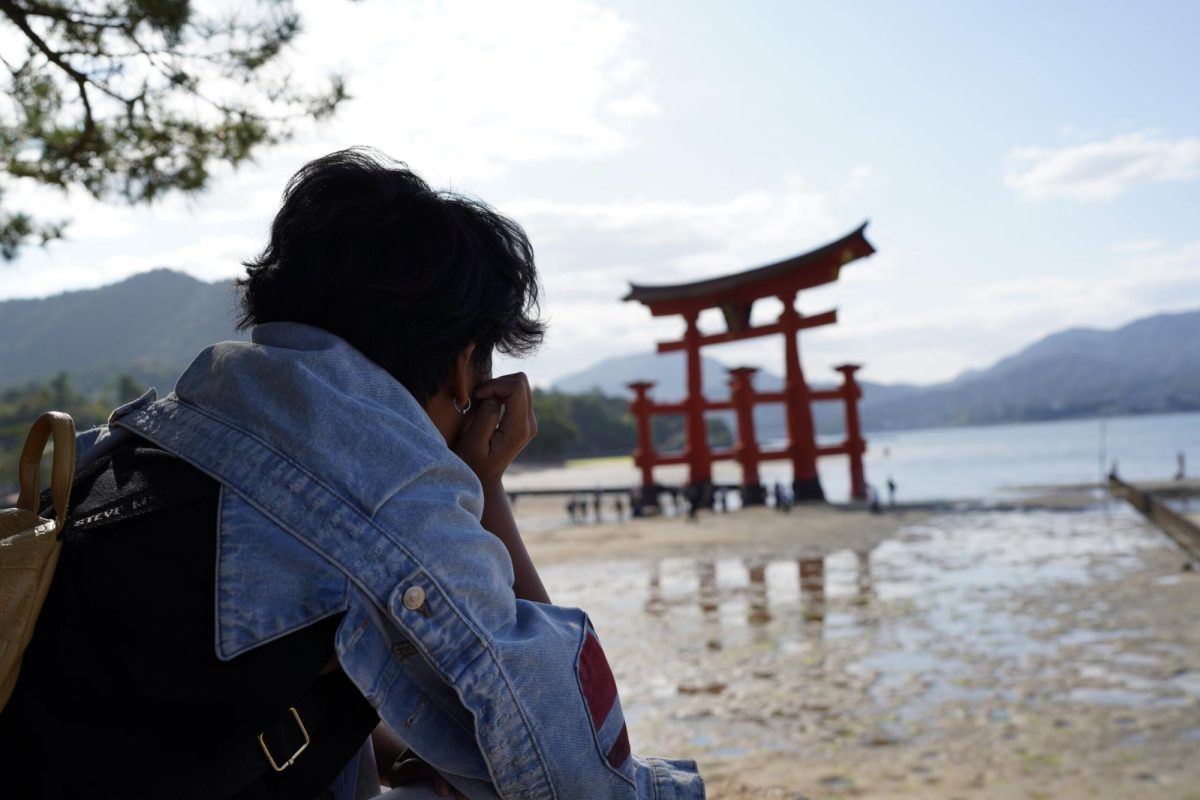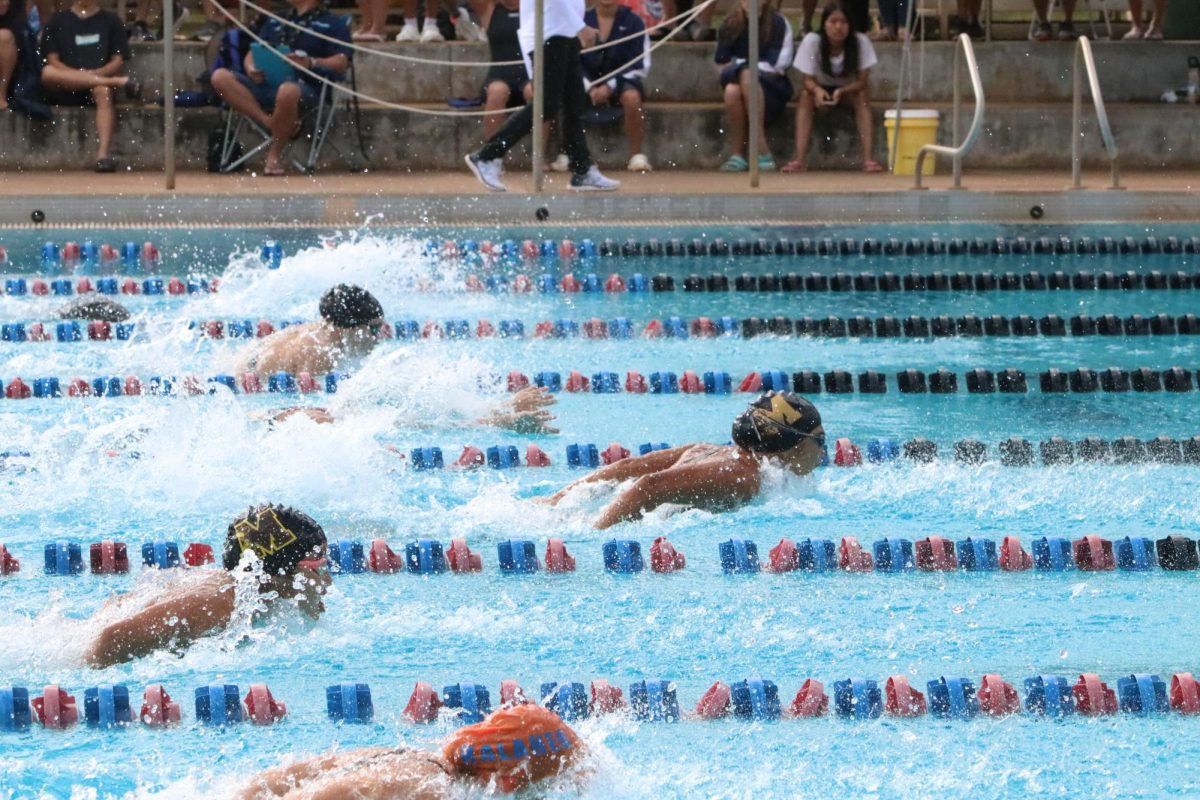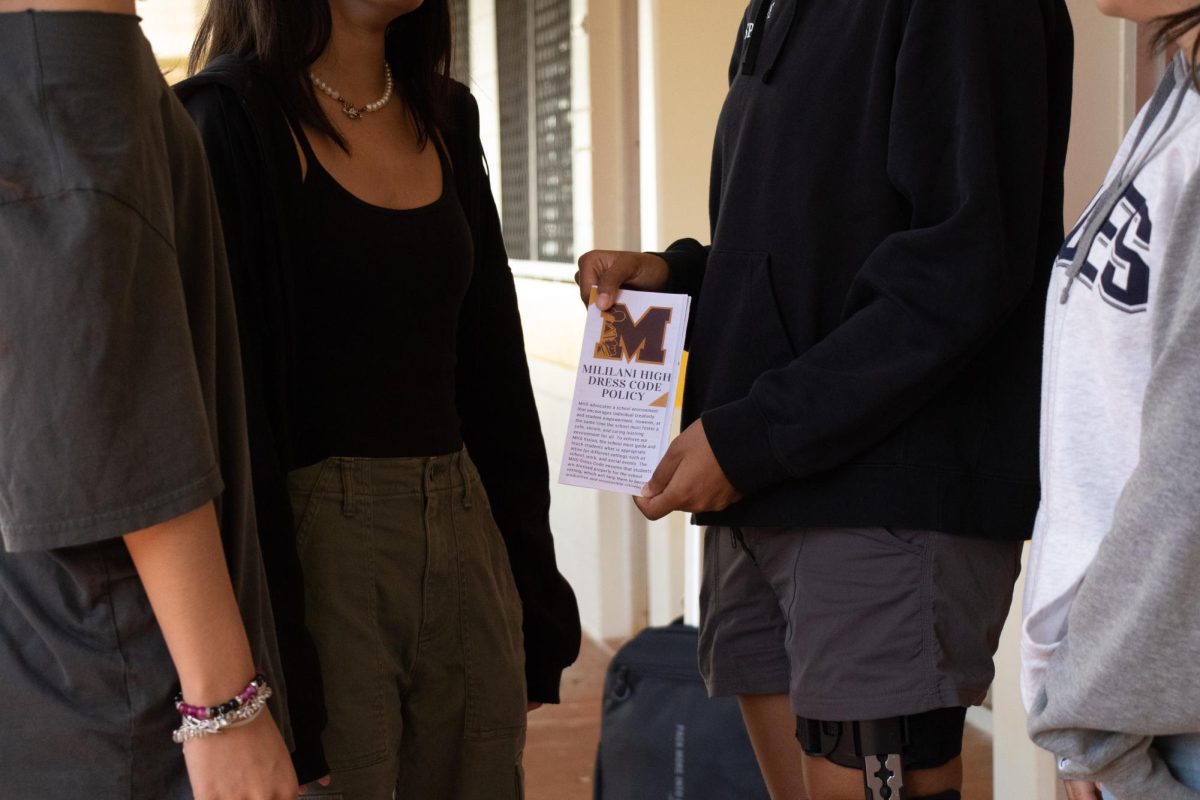History Brought To Life: Vietnam War Veterans Visit MHS
May 23, 2019
Many veterans’ stories go untold, staying merely a memory within the people that experienced them during the war. To help preserve the stories of these veterans, Social Studies teacher Amy Boehning brought Vietnam War veterans to MHS on April 22 and 23 to speak with students about their experiences during and after the war.
“In history we talk about wars, what you would see in the textbook, and we would brief over it. But hearing the story from veterans and all types of veterans — and we have nurses coming in, last (time) we had someone who was on a sub, they get a better understanding of the events from the first (person) point of view,” said Boehning.
This was the second time the Vietnam War veterans came to speak to the students. Last year, Class of 2018 alumnus Travis Afuso had reached out to the veterans after a trip to Europe. “Travis Afuso, who’s now at West Point, spoke at our Vietnam Veterans of America meeting about this project he was considering. From there, I volunteered but eventually organized the veterans since I was concerned about our participation,” said retired Army Medical Corps veteran Warren Imada.
Boehning added, “Last year, we had twelve veterans who came (and) spoke to 600 students and from that it was such a moving experience for the veterans and the students that even though Travis is gone this year, he went to West Point, the US History professional learning community decided to do it again.”
Despite the violent nature of war and the troubles of recalling their experience and emotions, the veterans embraced the chance to spread their knowledge and memories with the students. For many of them, this was the first time sharing their experiences with others. “(I felt) very good about it. The young generation has to know something about the Vietnam War,” said retired Army Nurse veteran Rona Adams. “It is a great opportunity for us and for the students. However, it may be very difficult remembering and talking about some of the horrific things we saw and experienced.”
Because the stories originated from the veterans’ personal experiences, students were able to learn more about the more personal side of war than they normally would out of a textbook. “They make the events more real because they are not just students in a picture. It makes these horrible events for the students more personal,” said Boehning.
Junior Hi’ilani Helenihi added, “It brought more of a perspective. I think I underestimated how they trained going into war. I thought it was short but they spent two years there (in training) which I thought was really cool.”
Besides recalling the past, the veterans also spoke about their own opinions on the war. Many of them hoped to get messages across that were based on their personal experiences. “(I) pretty much followed my previous notes focusing on my perceptions of that era from an initially naive young officer to a more realistic, mature, fairly well-read critic of the political lessons to be learned and not repeated,” said Imada. “Sadly, I see that the lessons of the Vietnam war have not been learned (and) are still being repeated today politically and militarily.”
Another aspect of the speaker session was the disparity in age between the veterans and the students. For many students, this was the first time speaking to people who participated in the Vietnam War. “What is also special about this generation is because they have no understanding, no personal connections to Vietnam really because for me, my father’s generation was the one that fought in the Vietnam War and I grew up hearing about it and the conflicts. It is not that this group is out of touch but they are more removed,”
said Boehning.
Helenihi added, “With these stories, I realized how young these men were when they joined the war — this later showed how much they cared for being an American citizen. In my household, my parents didn’t know much about Vietnam war, only that my grandfather was in the war. Furthermore my family didn’t talk about the war.”
Although the speakers had a big audience, the students attending the session were limited to only juniors and seniors. The students took notes on the information they received and used them as part of a project for their US History class. “We are doing it through our US History class, it is part of our New Movements New Voices unit, and the purpose of this — it’s about recording oral history. So students are going to be not only listening to it, but taking notes and coming back and creating a profile for the veterans in class,” said Boehning.
Helenihi added, “Taking the notes on the veterans and learning new things about each and every one of them and their experiences were very interesting. We wanted to get their experiences so we can learn their legacy and to know different things that happened to Americans and how they impacted the US.”
Boehning hopes to make the veteran speaker sessions an annual event in the future. Similarly, the veterans hope to continue spreading their experiences from the past to future generations. “I was enthused and glad to be able to participate in such a worthy oral history project. I believe that it’s important that the current generations have the opportunity to have personal insight into what preceded their generation. Each generation has a legacy to pass on,” said Imada.
The complete list of the Vietnam War veterans who attended the speaker session were retired veterans John K. Mahelona, Mary McEldowney, Lieutenant Robert McEldowney, SP4 Stephen Mortimer, Dan O’Leary, Spec 5 Dickie Shimoko, Hospitalman 2nd Class Michael Steinhilber, John Hoff, Bruce Woods, Lieutenant Alvin Au, Colonel John Bates, Sergeant Robert Bretschneider, Colonel Victor Bonfiglio, Sergeant Larry Johnson, Dave Leatherman, Captain Rona Adams and Captain Warren Imada.





william Hopson • Aug 14, 2020 at 11:19 pm
Wondered if the Mary McEldowney listed here, could be the same person who worked as a psych nurse for the VA back in the 80’s & 90′,s?
If so, please have someone let her know that I made it! The time and patience she had working with me was trying, I’m sure. But she believed in me when I didn’t. Here I am 35+ yrs later, and her promise to me came through. I would not be here without the time she shared me.